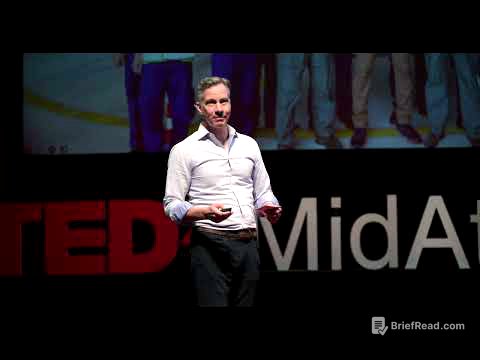TLDR;
This video by Dr. Shafiq Cheema provides practical dietary changes to improve kidney health and slow deterioration. The key recommendations include prioritizing home-cooked meals, increasing water intake, limiting animal protein and salt, and avoiding processed and fast foods. These changes help control ingredients, manage weight and blood pressure, and reduce the strain on the kidneys.
- Eat home-cooked food to control ingredients and reduce salt, unhealthy oils, and excessive fats.
- Drink more water and avoid sugary and fizzy drinks to stay hydrated and manage weight.
- Limit animal protein intake and opt for plant-based protein to reduce strain on the kidneys.
- Reduce salt intake and use alternative spices to manage blood pressure, a major factor in kidney disease.
- Avoid highly processed and fast foods due to high levels of preservatives, salts, and unhealthy ingredients.
Eat Home-Cooked Food [0:50]
Dr. Cheema advises prioritizing home-cooked meals to maintain control over ingredients. Outside food often contains excessive salt, unhealthy spices, and unknown oils, which can be detrimental to kidney health. Cooking at home allows you to use organic ingredients, healthier oils, and control the amount of salt. For kidney disease patients, bringing home-cooked lunch to work instead of ordering fast food can significantly reduce calorie, protein, and salt intake.
Increase Water Intake [2:11]
The video emphasizes the importance of water intake over other beverages. Whenever you're thirsty or want a drink, choose water instead of sugary sodas or fizzy drinks, as these are unhealthy. Drinking water before meals can also help you feel full, leading to reduced food consumption and better weight management. While occasional consumption of Coke or Pepsi is acceptable, it should not become a regular habit.
Limit Animal Protein [3:12]
Dr. Cheema recommends limiting animal protein intake and opting for plant-based sources like vegetables, pulses, and gram. A reasonable daily protein allowance is about half your body weight in kilograms, expressed in grams. For example, a person weighing 60 kg should aim for 30 grams of protein daily, including all meals and snacks. Plant-based protein is preferable, and while it's important not to eliminate protein entirely to avoid muscle wasting, moderation is key.
Reduce Salt Intake [4:24]
The video advises reducing salt intake to manage high blood pressure, a common issue among kidney patients. Alternative spices, vinegar, and lemon juice can be used to enhance flavor. While salt should not be completely eliminated, it should be used sparingly. Managing blood pressure is crucial because high pressure in the arteries directly affects the kidneys, leading to protein leakage and further damage.
Avoid Processed and Fast Foods [5:01]
Dr. Cheema reiterates the importance of avoiding highly processed and fast foods, which are increasingly common. These foods often contain high levels of preservatives, salts, and unhealthy ingredients. Even small servings can be calorie-dense due to frying and excessive oil. Packaged foods stored in freezers and cooked at home are also similar to outside food in terms of unhealthy additives.









![AP Human Geography Unit 7 Live Review! [Industrial and Economic Development Patterns and Processes]](https://wm-img.halpindev.com/p-briefread_c-10_b-10/urlb/aHR0cDovL2ltZy55b3V0dWJlLmNvbS92aS83cFF1MW42WElHOC9ocWRlZmF1bHQuanBn.jpg)